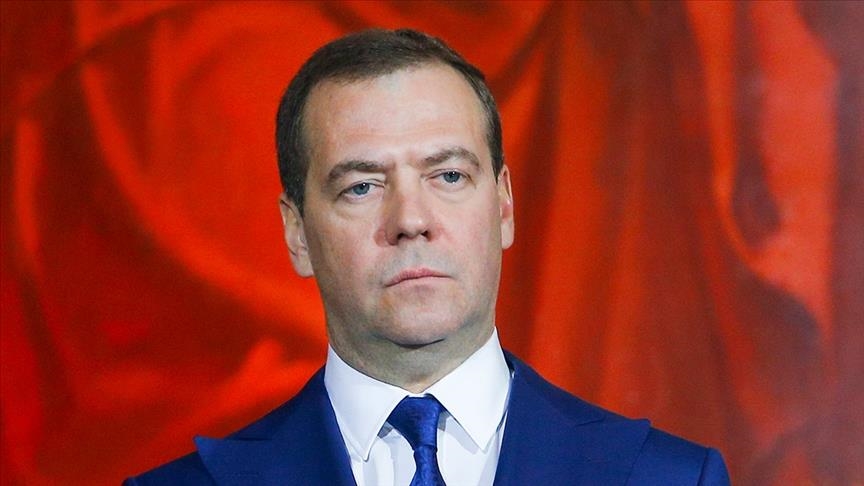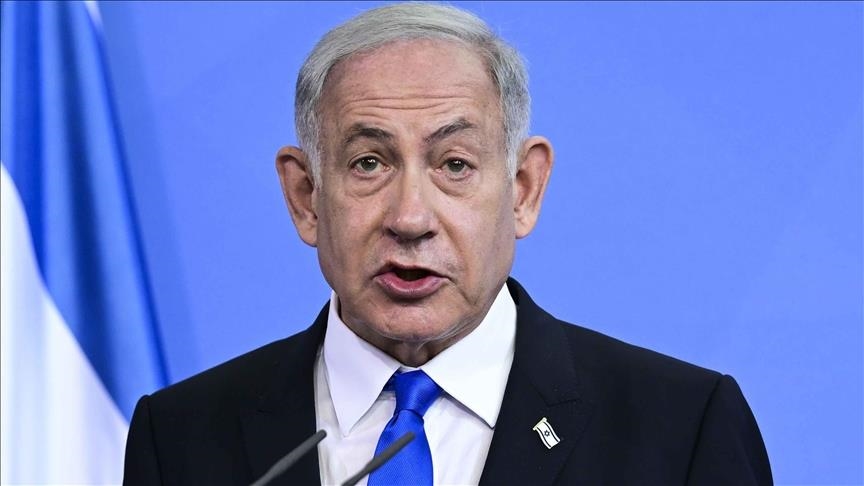Geopolitics vs. connectivity: The IMEC’s fragile ambitions
The author is a research fellow at the Caucasian Center for International Relations and Strategic Studies (QAFSAM).
ISTANBUL
The recent conflict between Iran and Israel has far-reaching economic and geopolitical implications for the international system. One of the less-discussed yet critical consequences of this escalation is its impact on the planned transcontinental trade corridor known as the India-Middle East-Europe Economic Corridor (IMEC). Proposed during the 2023 G20 Summit, IMEC aims to strengthen trade and infrastructure connectivity between India, the Gulf region, and Europe by integrating ports, railways, energy grids, and digital networks. However, the corridor’s future is increasingly uncertain due to rising regional instability.
Despite political will from the European Union, India, and Gulf countries, the volatility in the Middle East remains one of the key factors undermining investor confidence and casting doubt on the corridor’s reliability. Even before the Iran-Israel conflict escalated, IMEC faced several geopolitical and economic obstacles that made its implementation difficult. Geopolitically, Israel’s ongoing genocidal war on the Gaza Strip has posed direct risks to the core infrastructure plans of the corridor, particularly the proposed rail link passing through Israel and Jordan. These risks, coupled with the broader Israeli-Palestinian tensions, make the region less attractive for long-term investment and pose security challenges that may delay or even derail critical construction phases.
Unfinished normalization and exclusionary politics
Furthermore, the lack of full normalization between Israel and many Arab states has hindered the development of a coherent regional approach to corridor development. While diplomatic breakthroughs such as the Abraham Accords opened some pathways for cooperation, the lingering mistrust between key players continues to obstruct meaningful progress [1]. Moreover, the exclusion of important regional actors such as Egypt, Türkiye, and Qatar further complicates IMEC’s long-term prospects. These countries may perceive the corridor as a strategic bypass, potentially weakening their geopolitical leverage.
Egypt, for instance, may respond by reinforcing the strategic importance of the Suez Canal, while Türkiye could intensify its efforts to promote the Middle Corridor—a trade route linking Central Asia to Europe via the South Caucasus. These dynamics could undermine regional connectivity efforts, reducing the corridor’s effectiveness and appeal.
Economically, the corridor’s development faces formidable challenges. The projected costs are immense, with initial estimates of $3 to $8 billion per segment [2] likely falling short of actual requirements. Even with Saudi Arabia’s commitment of $20 billion to broader development initiatives, the financial burden of building and maintaining the corridor remains daunting. Logistical and infrastructure-related hurdles are equally significant. In many parts of the Middle East, particularly in areas like Jordan and parts of the Gulf, railway infrastructure is either underdeveloped or entirely absent, necessitating a massive construction effort. However, the challenges extend beyond physical infrastructure.
Institutional challenges, such as incompatible technical standards, inconsistent tariffs, and inefficient border procedures, threaten to undermine the corridor’s competitiveness. A lack of harmonized customs systems or synchronized digital protocols could lead to delays and higher costs, eroding the very efficiency IMEC aims to deliver [3]. In addition to the pre-existing structural and geopolitical barriers, the Iran-Israel crisis has introduced new layers of uncertainty that threaten the future of the corridor.
Instability repels investment
Israel’s inclusion in IMEC was strategically intended to connect Gulf rail networks to European ports through its railway system and Haifa Port. However, the Israeli aggression in the region now places Israeli infrastructure and logistics assets at heightened risk of missile strikes, cyberattacks, and other forms of sabotage. The private sector has already begun responding to this instability. Major shipping companies, including Maersk [4], have temporarily suspended vessel calls and cargo acceptance at Haifa, signaling growing concerns about operational security and commercial viability in the current environment.
This escalation also heightens political risk, further discouraging private sector involvement in both the development and use of the corridor. For companies evaluating trade routes, increasing instability translates into higher insurance premiums, the potential for cargo delays, and rerouting of maritime flows—factors that directly undermine the corridor’s commercial viability [5].
Perhaps most crucially, the shift in regional and international priorities toward conflict containment and crisis management reduces the political focus and momentum needed to advance long-term connectivity projects like IMEC. In such a volatile environment, infrastructure investment becomes a secondary concern, overshadowed by the urgency of immediate security and diplomatic challenges.
In conclusion, while the IMEC remains a strategically ambitious vision for fostering connectivity between India, the Gulf, and Europe, its realization is increasingly jeopardized by escalating regional instability—most notably the Iran-Israel crisis. The combination of security threats, exclusionary geopolitical dynamics, and wavering investor confidence has severely undermined the corridor’s feasibility. Without a shift toward inclusive diplomacy, risk mitigation, and sustained political commitment, IMEC may ultimately remain a symbol of unrealized potential—rather than the transformative infrastructure project it aspires to be.
[1] https://carnegieendowment.org/sada/2023/12/the-india-middle-east-europe-economic-corridor-imec-too-little-too-late?lang=en
[2] https://www.orfonline.org/research/india-middle-east-europe-economic-corridor-towards-a-new-discourse-in-global-connectivity
[3] https://ecfr.eu/publication/the-infinite-connection-how-to-make-the-india-middle-east-europe-economic-corridor-happen/
[4] https://www.maersk.com/news/articles/2025/06/16/middle-east-situation-update
[5] https://www.geopoliticalmonitor.com/israel-iran-war-casts-shadow-over-imec-corridor-ambitions/
*Opinions expressed in this article are the author’s own and do not necessarily reflect Anadolu’s editorial policy.
Anadolu Agency website contains only a portion of the news stories offered to subscribers in the AA News Broadcasting System (HAS), and in summarized form. Please contact us for subscription options.



